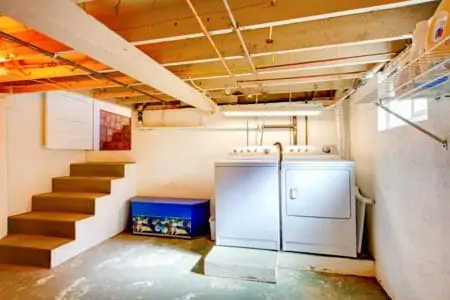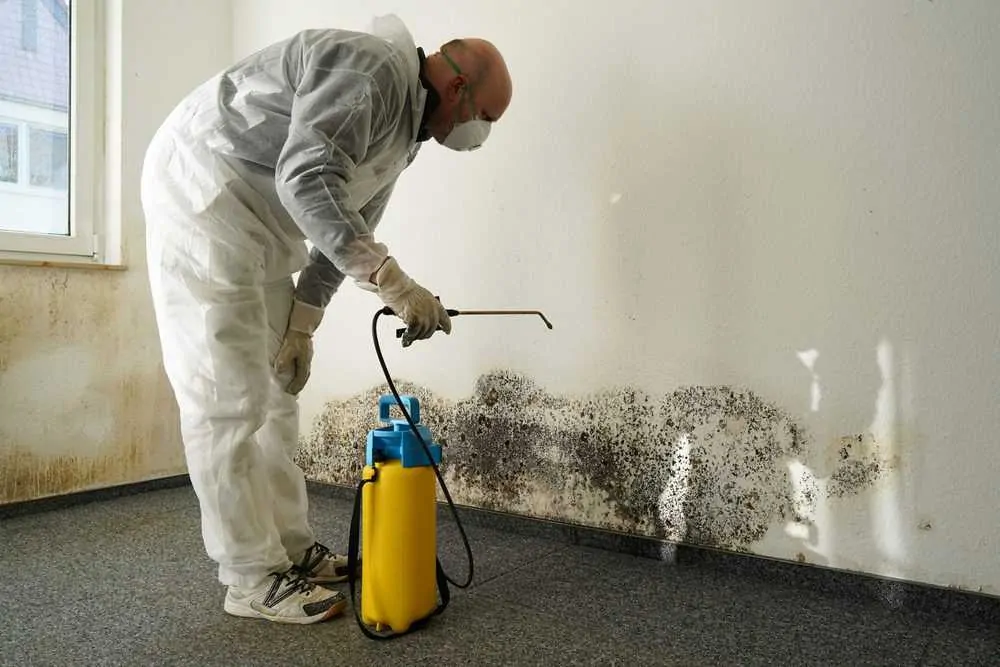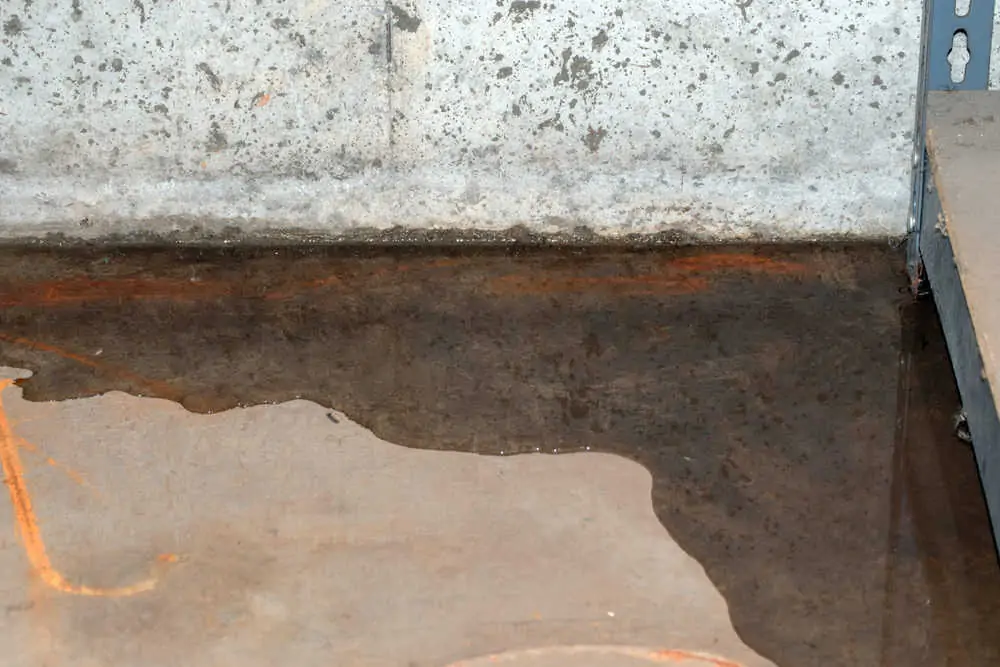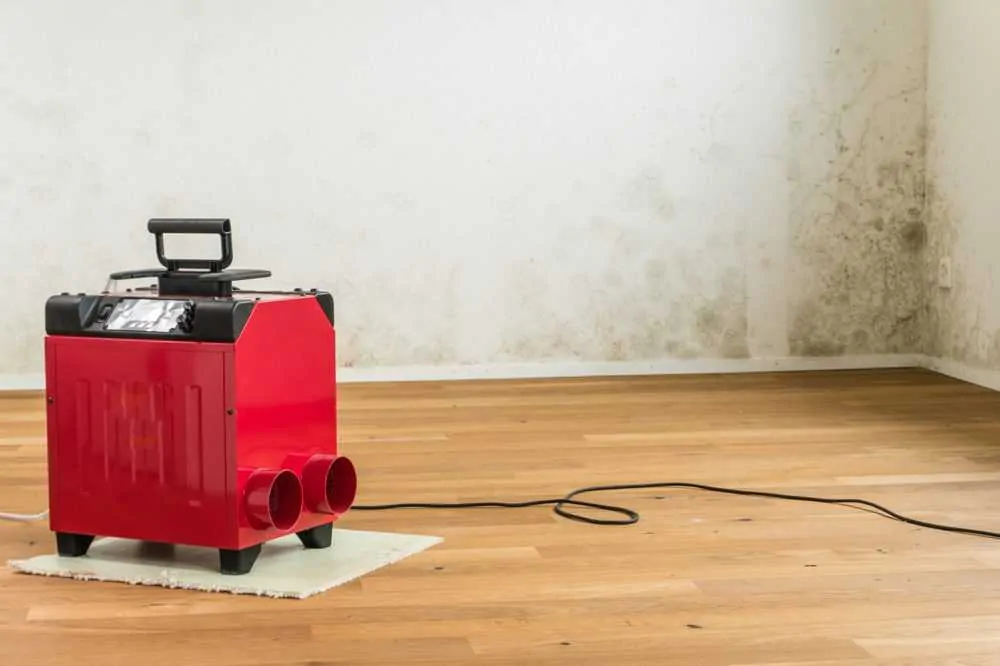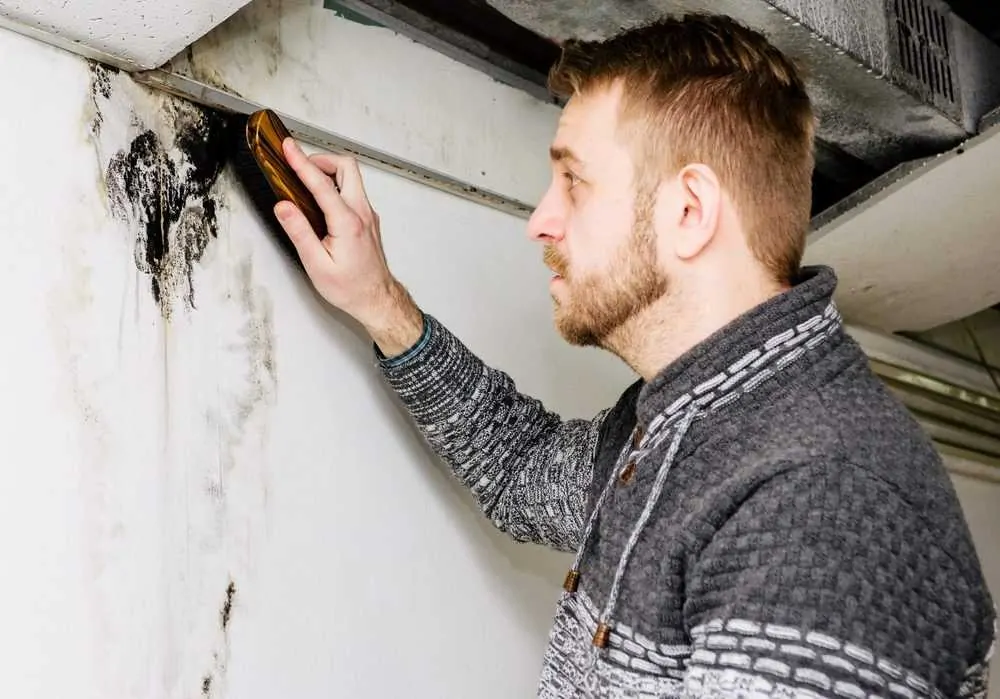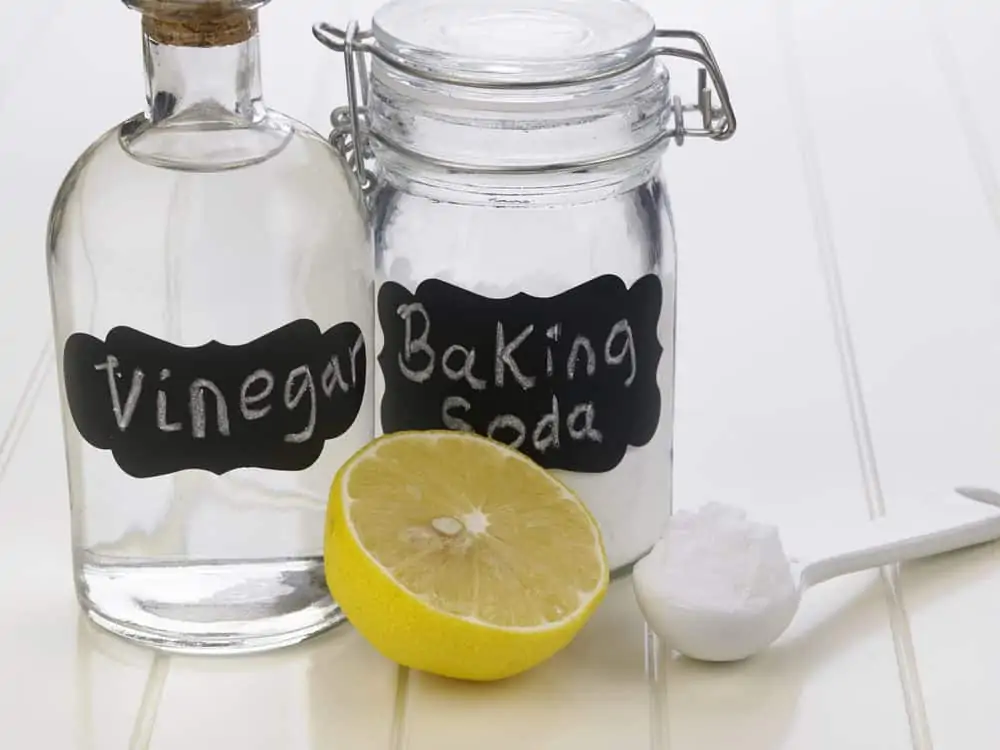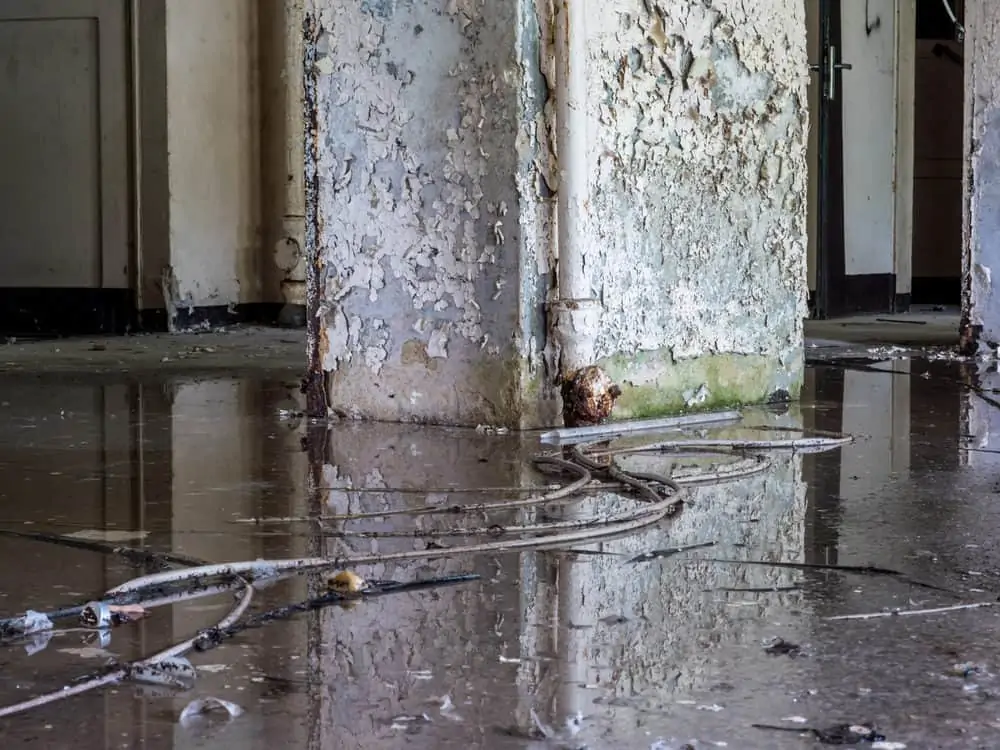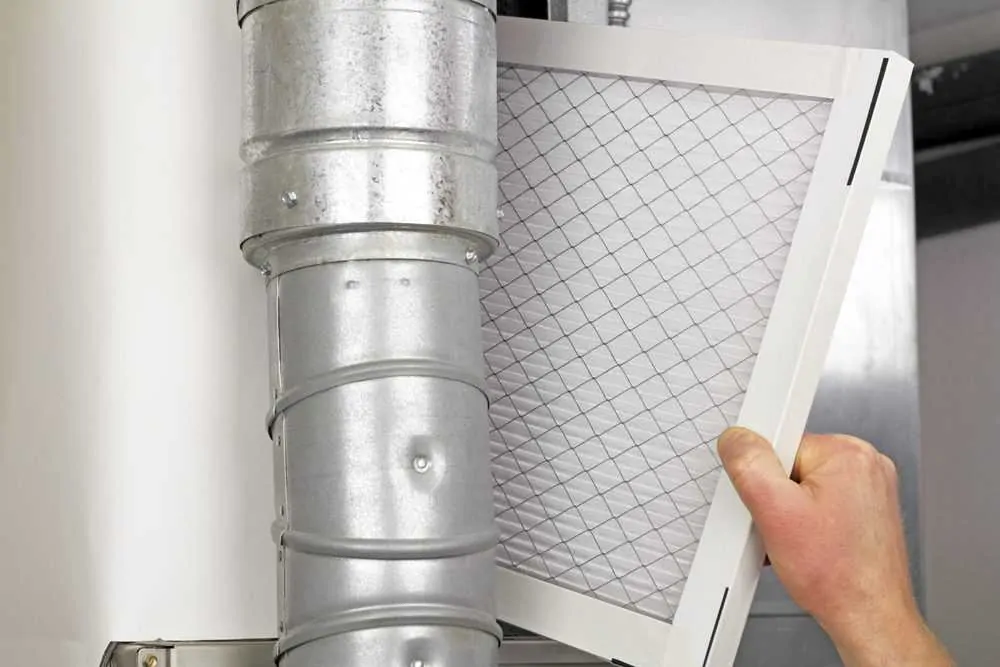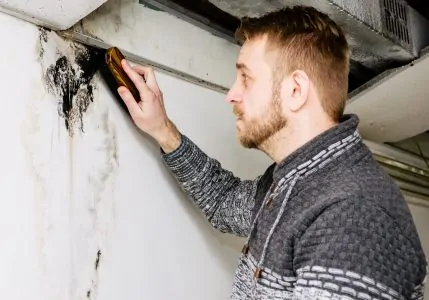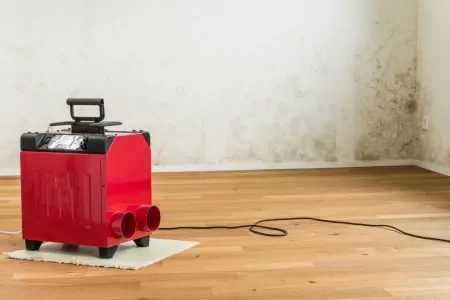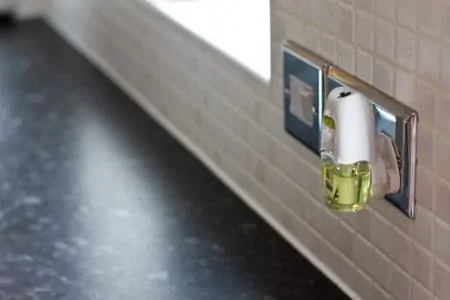Whether you use your basement as a game room, laundry room, storage, or a man cave — the last thing you need are weird smells.
In this post, we’ll teach you the varying causes of basement odors and different methods to get rid of it. So if your basement is smelling musty, damp or foul, we’re here to help.
Key Takeaways
- Identify the cause of basement odors, which may include mold, mildew, leaks, dampness, or sewage problems.
- Fix any leaks, remove standing water, and consider using a dehumidifier to maintain humidity levels below 60 percent.
- Clean mold and mildew spores with bleach, and call a professional if needed for severe problems.
- Neutralize odors by placing bowls of baking soda or spraying distilled white vinegar around the room.
Causes of Basement Odor
The first step to tackling basement odor is to find out where it is, what it is, and what caused it. Here are some of the most common causes of basement odor:
- Mold and mildew: It’s quite common that the damp musty smell is mold and mildew. Because basements are sometimes warm and humid, it’s a thriving place for mold and mildew. If you’re allergic to mold and are experiencing allergy-like symptoms, then there’s a pretty good chance that’s the culprit.
- Leaks and dampness: The smell could be coming from a leak, which has led to dampness. If you live in a particularly wet area, it could also be due to the weather. Check for leaks in your appliances or house’s piping to see if there’s damage.
- Dirty basement: The odors could be coming from the simple reason that your basement isn’t clean. If your pets chill out down there, check for any urine or feces. Make sure to clean your basement regularly.
- Sewage: Sewage problems can end up stinking out the basement. If you have plumbing issues, this can lead to bad odors. Check for cracked or loose sewer lines.
- Iron ochre: Iron ochre shows up in wet basements. It appears as a rust-colored jelly-like ooze. It’s a little slimy and may show up on the walls or floors.
How to Get Rid of Basement Odor
Now that you’ve found the culprit of the smell, let’s tackle the odor. Each method will work better for specific causes, so make sure you know what is causing the odor first.
Call a Professional
Have you noticed mold, mildew, dampness, or other overwhelming problems? It may be the best idea to contact a professional.
True, you can fix these issues yourself. However, it may be easier and more effective to hire someone who is trained in these situations.
Cleaning mold and mildew isn’t everyone’s strong point. So get in touch with a local professional business to deal with this issue once and for all.
Fix Leaks
If you’ve found dampness and moisture in your basement because of an obvious leak, it’s time to fix that right away. Whether that’s from a window, a pipe, or an appliance — you should follow manufacturer’s advice on how to repair or replace it.
One example is leaky pipes. If your basement has exposed pipes that are visibly coated in condensation, you should insulate the pipes with a foam pipe wrap. You’ll find these at hardware and home improvement stores. You can easily cut them yourself to slip them over the pipes. If the pipe is leaking though, call a plumber.
As for leaky windows, fill the window wells with gravel to reduce clogs and moisture. Make sure to replace old weather stripping and caulk, as well as resealing leaks around the frame.
Run a Dehumidifier
The more moisture that’s in your basement, the more likely it is to smell damp and host mold. So get out your dehumidifier, or buy one of our favorites, and get it running in the basement.
We recommend setting the humidity level to 60 percent. This will lower moisture levels in the basement so it’s less likely for mold and mildew to thrive.
Pro Tip
Clean Mold and Mildew Spores
It is wise to tackle the root of the issue and make sure the mold can’t grow anymore. But you should also tackle the existing mold and mildew spores.
Remove all damp items, such as cardboard boxes, papers, and decorations.
Make sure to wash all affected clothing. Use the hottest water possible and tumble dry if the clothing allows. Spot treat mold on furniture but keep in mind you may have to sacrifice badly affected furniture pieces.
Use bleach to clean mold off floors and walls.
When in doubt, contact a professional and they can help!
Neutralize Smells
For simple odors, or to just freshen up the basement after tackling a big mold breakout, you should work on neutralizing the smells. This is a tried but true tip. Place a few bowls of baking soda around the room to absorb and neutralize the odors.
You could also spray distilled white vinegar around the room which can also neutralize odors.
If this doesn’t work, try a product called DampRid. This traps moisture, eliminates odors, and creates cleaner air.
Remove Standing Water
If you’ve had a big leak or a flood, you need to immediately remove the standing water. We recommend calling your local disaster restoration experts to help out with this big job.
Ultimately, you need to get the water pumped out, dry the home and check for signs of mold and rot caused by the water.
Call a Plumber
If the bad smells are coming from a plumbing issue, a sewage issue, or iron ochre, it’s time to call a plumber. They can check and fix for clogged pipes, blocked trains and rot. They can also replace corroding pipes.
Once they locate and solve a problem, you may notice an immediate change to your basement odors!
Deep Clean
It may be that you don’t have mold, mildew, dampness, rot or sewage problems. Perhaps your basement just needs a deep clean! If you use your basement for storage, and it’s super cluttered, there won’t be good airflow which can lead to bad smells.
Get rid of anything you don’t need anymore and deep clean your basement. This means cleaning the ceilings, walls, floors, closets and all nooks and crannies. Vacuum the floors and mop thoroughly.
Clean the Dryer Vent
A specific tip but one that may make all the difference, especially if your dryer is in the basement. Start outside where the dryer vent exits and clean it all the way to the base of the dryer.
There may be blockages which allow moisture to build up in your home. You may also be subject to rodents hanging out in the vent since the lint and warm temperature is a great place for them!
Fix Cracks
Lastly, you may have a structural problem. In that case, you must fix the cracks immediately. You can do this yourself or contact a professional. You can use an epoxy solution or polyurethane but make sure to keep an eye on the crack so that you notice any future damage.
Meanwhile, check the gutters for clogs as these can divert the water over the foundation of your home.
If you have a crack and it’s led to moisture, make sure to tackle the moisture, dampness, and potential rot, too.
Do I Need to Run a Dehumidifier in the Basement in Winter?
This depends on a few different circumstances. First of all, you should get a hygrometer to check your humidity level. If it’s above 50 in the winter, you will benefit from running a dehumidifier. We recommend setting it to 40 percent.
Another factor is where you’re located. If you live in a super cold area, you may not need to run a dehumidifier in the winter. But if your basement stays pretty warm (above 60°F) there’s a good chance you should run your dehumidifier.
Overall, if you use a dehumidifier in the winter, keep an eye on the moisture levels. You don’t want the room to be too dry or cold, especially if you have appliances down there that could freeze.
Does DampRid Work in Basements?
It sure does! As mentioned previously, DampRid can trap moisture, eliminate odors and make the air cleaner. However, if you have had a big leak, we still recommend hiring a professional to deal with the root of the problem. Use DampRid as a final step.
What Can I Use to Absorb Moisture in My Basement?
To absorb some excess moisture in your basement, you have many options:
- Install a dehumidifier.
- Use container desiccant packs. Just be sure to replace when they’re full.
- Place charcoal briquettes in a tin or box and put them around the basement.
- Put bowls of baking soda around the basement. Make sure to switch them out every couple of days.
- Place a container of rock salt in the basement. Replace every few weeks.
- Install a fan to circulate the air in the basement.
FAQs
Back to Basics
Once you have discovered the cause of your basement odor and tackled it accordingly, you can have a super fresh basement once again!
Do you want to throw parties down there, have a great laundry routine or use your basement for storage? Then it’s important to prevent mold, midlew, moisture build up and in turn, bad odors.
Our 10 methods can help, but when in doubt, always contact a professional.
